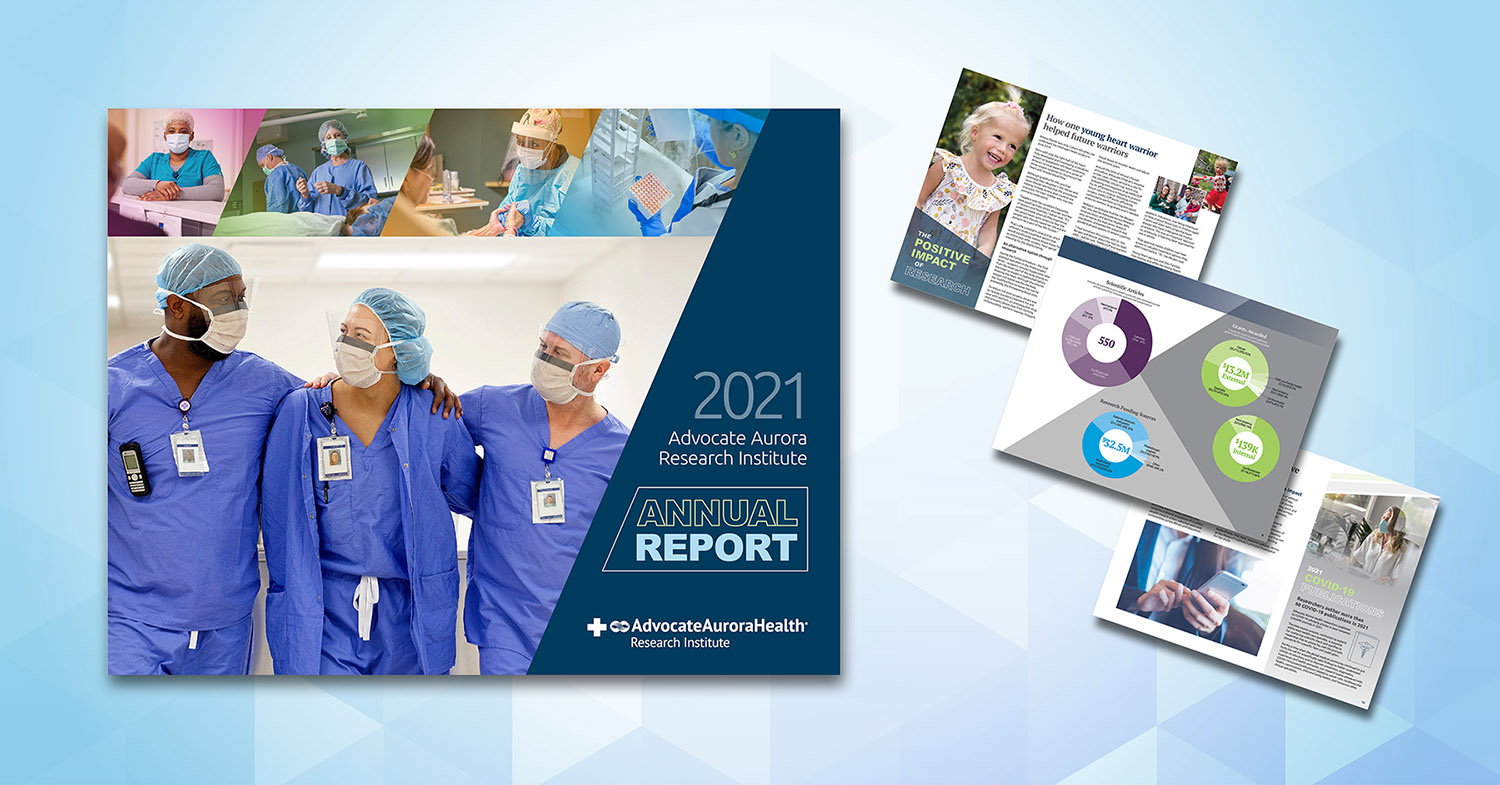Advocate Aurora Research Institute recently published its 2021 annual report.
This 2021 annual report was reformatted to highlight the innovative work conducted across the organization under the Research Institute’s recently restructured twin pillars of Clinical Trials Research and Academic Research and Strategic Partnerships. The annual report also describes the streamlined infrastructure and immense support services available through the newly integrated research enterprise. Finally, the annual report includes a special section sharing the Research Institute’s COVID-19-related research.
“As our 2021 Advocate Aurora Research Institute Annual Report shows, our new organizational structure aligns our research vision with the long-term transformational goals of Advocate Aurora Health, defines the value of research within the larger health system, and renews our focus on discoveries that directly improve patient care,” said Amit Acharya, PhD, president of Advocate Aurora Research Institute and chief research officer and system vice president of Advocate Aurora Health.
The Research Institute supports more than 800 unique research projects, including clinical trials, academic research, and laboratory and biorepository research. And its overarching goal is to translate this important research into practical and more effective treatments for people living in Advocate Aurora communities and beyond.
Research Institute successes include:
- Diverse research: The Research Institute boasts a well-balanced research portfolio with Centers of Excellence in cardiovascular, cancer and neuroscience clinical trials research, as well as academic and clinical research projects under the newly restructured Center for Child and Family Research. Additionally, the Clinical Trials Office oversees research in other specialties, including behavioral health, endocrinology, gastroenterology, geriatrics, mental health, population health, primary care, women’s health and more.
- Sound infrastructure: Research at Advocate Aurora is supported by the Research Institute’s Office of Academic Research Support, Office of Research Analytics and Systems Computing, Office of Biorepository and Laboratory Services, Office of Sponsored Research, and Office of Industry Engagement and Innovation. Additionally, the Research Institute is supported at the system level by Advocate Charitable Foundation, Aurora Health Care Foundation and the Research Subject Protection Program, as well as the health system’s Brand, Consumer Experience & Public Affairs; Compliance; Finance; Graduate Medical Education; Health Informatics and Technology; Human Resources; Legal; and Pharmacy departments.
- International reach: The Journal of Patient-Centered Research and Reviews (JPCRR) has readers in more than 200 countries and all 50 states. Read articles about the latest medical advances by visiting aah.org/jpcrr. JPCRR is indexed in PubMed Central, one of the U.S. National Library of Medicine’s premier indexes of biomedical and health research literature.
To learn more about Advocate Aurora’s research, visit aah.org/research.
